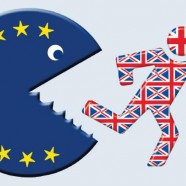
In many ways, the EU (European Union) was the ideal brand because its core promise to all Europeans involved sharing and connecting across all borders. But the tumultuous impact of Brexit on the future viability of the EU brand is a good example of what happens when an outside event undermines its basic brand positioning. And Millennials in the UK played a big role for causing this possible disaster.
It was the sense of community and connectivity that defined this Generation Y, known as the first digital generation. The EU brand meant more to Millennials than older people. They were born in this EU community and enjoyed the richness of diverse and integrated cultures, building friendships across all borders – i.e. a bond that characterizes a successful brand. They grew up knowing they had access to jobs in 27 different countries, were eligible for the European Union “Erasmus” program which subsidizes student exchanges in every EU country, and were eligible for several other pan-European opportunities. The glue holding this globalized generation together had been getting even stronger with the current move toward a single European digital market for movies and music streaming, and soon terminating cell phone roaming charges when crossing European Union borders. It is not surprising that the Eurobarometer survey always confirmed that younger Europeans felt more attached to the European Union versus older Europeans.
However, as in the U.S., this Generation Y in Europe has frustratingly not fulfilled its potential yet for significant change in the political spectrum. A major issue Is their lack of trust in Government, CEO’s , and politicians, a ubiquitous feeling among these Millennials all over the world. It remains to be seen if their idealistic values will ever translate to tangible social, political and economic changes in both continents, particularly in areas such as environmental improvements, greater corporate social responsibility, and more transparency in all governments and business.
Unfortunately this idealistic vision coexists with a general feeling of apathy, a common perception that these institutions and political systems will never really change or improve. The Generation Y today represents the biggest voting bloc in the U.S. (over 40 million voters), but getting them to actually vote has been very difficult due to this sense of hopelessness. (Recently Bernie Sanders did galvanize greater participation among the young, but who knows if they will come out to vote for Hillary or Trump.)
This voter apathy extended to the Millennials in Britain who dropped the ball in the recent Brexit election. Voter surveys confirmed the conundrum that faced the UK and also has alarming implications for the upcoming presidential race in the U.S.
- Millennials no doubt recognized the advantages of belonging to such a harmonious community, as 57% of voters aged 18 to 34 in Britain wanted to remain in the bloc, while the same percent (57%) of voters over 55 supported the leave campaign.
- However only 36% of eligible voters 18 to 24 and 58% of voters 25 to 34 came to the polls, compared to over 80% of voters 55 and over.
This shocking vote in the UK reflects many peculiar misconceptions by the electorate that are common in the U.S. as well. In both countries, the level of scaremongering over broadcast news and social media resulted in a passionate, emotional outcry by older voters against immigration, in particular. In the UK, many older people believed that immigration from Central and Eastern Europe had driven down wages and strained public services. Indeed, the benefits of globalization had not been communicated effectively, especially how EU money in many cases brought new jobs. Similarly Trump has capitalized on the suspicion among older, less educated voters that immigrants were taking their jobs away.
There was also a high level of disinformation in these political campaigns. The speed and ubiquity of social media exaggerated many false impressions. No doubt, technology has advanced faster than our ability to adjust, resulting in initial impressions of fear and even betrayal that can be difficult to correct or clarify in the short term. For example, Brexit campaigners promised a windfall of $462 million per week from British contributions to the bloc, which could be redirected to the National Health Service. In fact, only hours after their victory, many of these political leaders were already backtracking on these promises.
This Brexit event essentially highlighted the advantages of a strong EU brand (i.e. the unique cross cultural bond among all these Millennials), but also its vulnerabilities as the “Remain” politicians misread the sensitivity of its audience – e.g. mistakes like not accurately anticipating the emotional response to immigration issues, not credibly refuting misleading promises that could not be delivered, and their failure to convince this Generation Y to voice their opinions at the polls.



Connect with us